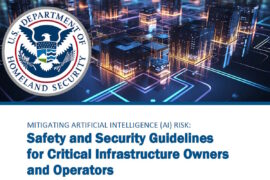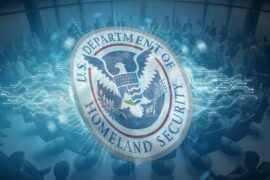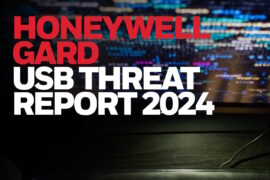US administration outlines measures to build cyber workforce to meet challenges of digital age

Following the July release of the National Cyber Workforce and Education Strategy (NCWES), the Biden-Harris administration announced Friday that over 50 organizations have so far made commitments in support of its comprehensive approach to address immediate and long-term cyber workforce needs. The administration has secured over US$280 million towards equipping Americans with foundational cyber skills, transforming cyber education, expanding the national cyber workforce, and strengthening the federal cyber workforce.
“We are appreciative of the commitments made by big technology companies like Cisco Systems and Palo Alto Networks, by manufacturers like Boeing, financial institutions like Visa, nonprofits like ISC2, partnerships between groups like Siemens Energy, the SANS Institute and ICS Village, and statewide ecosystems like the Ohio Cyber Range Institute-Regional Programming center Ecosystem (OCRI-RPC),” Kemba Walden, acting National Cyber Director, wrote in a statement released by the White House. “Together, commitments made by all of these institutions will build the pipeline of cyber talent and foster our ability to create a secure, resilient, and defensible cyberspace.”
Walden added that in October alone, some of the nation’s largest companies have stepped up to accelerate and expand training and apprenticeship programs, committing to reach up to 225,000 people, and have built cybersecurity competitions to challenge new expertise and bring talent into cybersecurity companies.
She also detailed that the ICS Village, a non-profit organization to advance security awareness and education of industrial control systems (ICS); SANS Institute, a non-profit organization to advance security awareness and education of ICS; Siemens Energy, a Siemens business that supports companies and countries to reduce emissions across the energy landscape for a more sustainable energy system, and their partners plan to launch the Cybersecurity & Industrial Infrastructure Security Apprenticeship Program (CIISAp) as a ‘Registered Apprenticeship’ to develop the next generation of cyber defenders protecting the digitally connected systems such as energy assets, wastewater treatment facilities, advanced manufacturing, and transportation systems.
“The initial goal is to fill the pipeline with 100 candidates with a focus on veterans and transitioning military members,” according to Walden. “This four-year program would enable apprentices to apply their technical industrial cybersecurity education with moderate computer skills and gain the hands-on experience and knowledge needed to fill existing cybersecurity vacancies that currently pay above $90,000 per year. Apprentices would gain job experience at a rotation of employers while receiving technical training, as well as completing hands-on exercises and industry certifications.”
She added that ISC2, an organization that provides training and certifications for cybersecurity professionals, will provide a minimum of 25,000 individuals working in Advanced Manufacturing with its foundational Certified in Cybersecurity certification exam and training for free to help address the sector’s critical cybersecurity skills gap. ISC2 will also introduce a series of 10 virtual forums over the next two years to explore solutions to the cybersecurity workforce challenges impacting the nation’s advanced manufacturing sector.
Boeing has created new demands for technical skills to align with the digital future of work. The Boeing Technical Apprenticeship Program (BTAP) is an accelerated, on-the-job, earn-as-you-learn registered apprenticeship development program for those interested in gaining new job-ready technical skills for emerging and in-demand roles. BTAP participants receive paid, relevant work experience and are mentored by industry leaders while acquiring valued skills and on-the-job experiences.
Detailed released by Walden identified that after a successful pilot program led to more than 10 high-quality and diverse employees hired across several states, BTAP launched a second cohort in July 2023 and is planning to expand the next round of apprenticeships to directly support Boeing as well as industry partners, preparing employees for jobs in information systems security, architecture, and cloud security, incident response, and/or product security engineering.
Cisco has committed to providing certification-driven, skills-based training to U.S. organizations to enhance their cybersecurity teams and achieve cybersecurity readiness. As part of this commitment, Cisco aims to train 200,000 individuals with cybersecurity skills in the U.S. by July 2025 through the Cisco Networking Academy.
Apart from providing security products and solutions, Cisco is addressing the critical need to close the cybersecurity skills gap at all levels by offering a continuum of learning through Cisco Networking Academy and Cisco U, Walden detailed. Further, Cisco recently released a new Ethical Hacker course to prepare individuals for cyber offensive roles like Ethical Hacker and Penetration Tester.
“Palo Alto Networks kicked off its 2023-2024 Secure the Future competition, which challenges 100 students enrolled in community and four-year colleges and universities throughout the country to identify and address cyber threats in vulnerable industries,” according to Walden. “To date, Palo Alto Networks has hired seven participants from the competition. The top three finalists are awarded cash prizes of $10,000, $5,000, and $2,500, respectively.”
She added that the company also invests in educating and training a new cohort of early talent professionals and interns as members of its Systems Engineering (SE) Academy. “It is one of several accelerated onboarding programs offered by Palo Alto Networks to help develop and diversify the cyber workforce and arm recent college graduates with hands-on labs and facilitated training with industry experts. As full-time members of the Palo Alto Networks workforce, program participants help organizations optimize their security posture. Palo Alto Networks recently welcomed a new cohort of systems engineers and is actively recruiting for 2024.”
Walden added that the Ohio Cyber Range Institute-Regional Programming Center Ecosystem (OCRI-RPC) Ecosystem is committed to expanding its skills-based training on a secure cyber range to all 88 counties in Ohio. The community knits together 24 other Ohio universities, colleges, and non-profit organizations through a regional programming center system to deliver cyber range services to cybersecurity professionals and students across Ohio. The OCRI-RPC Ecosystem has supported, to date, over 20,000 distinct Ohio-based users through 314 K-12 classes, 668 higher education courses, and delivering 105 cyber camps, exercises, and boot camps, the latter involving 1000 citizens seeking industry-recognized cybersecurity credentials.
Coming to Visa, Walden identified that the digital payment company launched the Visa Payments Learning Program to diversify entry paths into the workforce with an initial focus on payments cybersecurity. “Through its learning courses and certifications, Visa seeks to upskill underutilized talent, such as returning-to-workforce, early-in-career, second career, and military talent – thereby broadening the industry’s talent marketplace,” she added.
In August, the Department of Defense (DoD) published its 2023-2027 Cyber Workforce (CWF) Strategy Implementation Plan that directly addresses the department’s cyber talent gap and puts in place the necessary initiatives to cultivate the future cyber workforce. The CWF Strategy Implementation Plan document will assist the department in advancing talent management initiatives for a more diverse and effective cyber workforce.










